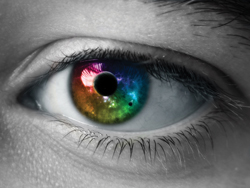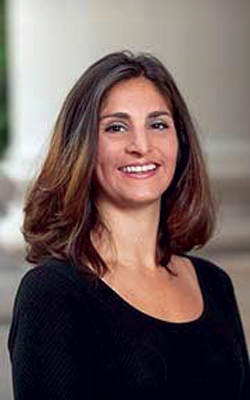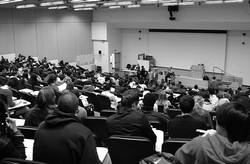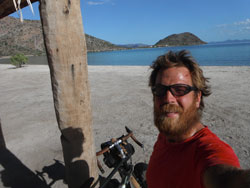November is a month that is not only dedicated to honoring our country’s veterans and the Thanksgiving holiday, but as of two years ago it is also Blindness Awareness Month.
People with low vision are able to receive a variety of services that can help them be successful in life. One of the organizations offering these services is the New Jersey Commission for the Blind and Visually Impaired which assists with helping people with limited vision achieve independence through providing them with tools such as books on CD, or a Closed Circuit Television to enlarge print size. “We currently have six students enrolled at Monmouth from our agency. One of our biggest challenges is assisting those who are visually impaired, (partially sighted) because on the outside they may not appear to have an obvious difficulty,” said case worker Diana Cortez
It is very important to understand that many people with blindness and low vision have been successful as a result of these supports. Education Leadership Professor Doctor Terri Peters had the opportunity to express these benefits at a panel.
Last month four panelists during a presentation to the Foundation Fighting Blindness were people who have successful careers despite living from limited vision or blindness. In attendance were people with professions such as lawyer, disability rights advocate and a film editor.
The panelists discussed the benefits of t heir eye c onditions. Yes, there are benefits! Because they sometimes need to seek assistance (mostly due to navigation), they meet many people everywhere they go. The panelists also discussed all the technology that has enhanced their independence. One panelist has also had the chance to compete on an athletic team. Two years ago, another panelist participated in athletics by being on the NJ Lightning, a blind baseball team. These folks are true athletes. One person also knows a man who is completely blind and has his own auto shop, succeeding as a top notch mechanic.
Another area of concern for blind and visually impaired individuals is being able to navigate and adapt to new surroundings. The use of a mobility cane as well as pairing up with another person with sight to guide him/her often provides a significant amount of assistance in achieving this goal. Christina Quercia, a freshman in Elmwood Hall, has a friend who is blind who said, “Getting around is a major challenge for my friend, but it has also opened my eyes to better understand her world and the things many of us take for granted.”
Becoming blind or visually impaired is a fear for people who do not know what it is like to live that way. To that end, Peters had some of last year’s educational psychology students would wear special goggles to simulate what it is like to be blind and to navigate the classroom while wearing them.
“I’ve conducted class exercises on campus where some students pretend to be blind. My student observers always report that people would move far away from the blind person and would also avoid speaking with the person with the cane. This mirrors what I have witnessed firsthand,” said Peters.
In fact, according to Anne Marie Cook, also a member of the New Jersey Commission for the Blind, blindness is the third most feared disability because of people’s heavy reliance on their sight.
This November, it is important to focus on one’s successes despite his or her differences and many hope that more people will become educated and inspired by these issues, not just those who work with people with disabilities.
IMAGE TAKEN from toastyart.com




